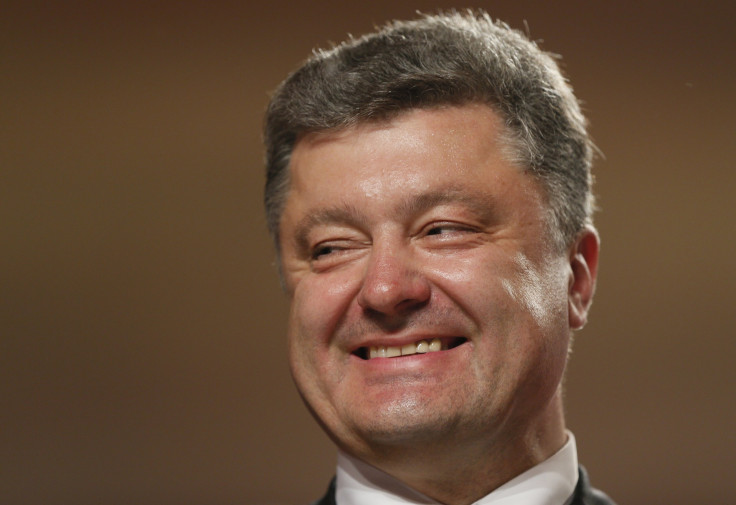Petro Poroshenko, 'The Chocolate King,' Handily Wins Ukraine Presidency - Exit Poll

Exit polls show that Petro Poroshenko, “The Chocolate King,” handily won the Ukrainian presidency in the first round of elections. Conservative estimates show Poroshenko walked away with 55 percent of the vote.
Poroshenko got 20 percent more votes than the four runners-up combined. Former Prime Minister Yulia Tymoshenko came in second with around 13 percent of the vote. There were 18 candidates on the ballot.
Poroshenko has run on a moderate platform, promising to bring stability to the East by engaging with separatists, establishing working relationships with both Europe and Russia and rallying against corruption. He spoke to supporters shortly after polls closed.
The first steps of my team will focus on ending the war, the chaos, the unrest and bring peace to the land of Ukraine. My first trip as president will be to the Donbas [eastern Ukraine],” Poroshenko said. “I will thank them. And I will thank the Ukrainian military who protected the people and the polling stations. We will take unhesitating steps to implement the association agreement with the European Union.”
He also said Parliamentary elections will take place before the year’s end. Poroshenko also plans to talk with Russia about the Crimea referendum, which he does not recognize.
Poroshenko: Ukraine will never recognize Crimea's annexation pic.twitter.com/0IJGwRmFme
— Maxim Eristavi (@MaximEristavi) May 25, 2014By the count of the Ukrainian election monitor OPORA, by 4 a.m., voter turnout was 45 percent nationwide. 52 percent of voters came out in the Western Oblasts, 47 percent in the Central Oblasts and 37 percent in both the South and troubled Eastern Oblasts.
There were no polling stations in Donetsk, which declared itself independent in an unrecognized referendum, but there were polling stations in seven out of 12 electoral districts in the Oblast.
OPORA also tracked how much and where election procedure violations occurred. The biggest violations were the issuance of ballots without passports and attempts to vote without illegally. OPORA observed those violations at 7.5 and 6.8 percent of polling stations countrywide.
Voting did not take place in Crimea.
One of the most controversial candidates, Dmytro Yarosh, head of the radical Right Sector party, came away with only 1.1 percent of the vote. Fellow far-right candidate Oleh Tyahnybok, one of the leaders of the Maidan protests and head of the Svodoba party, won only 1.3 percent of the vote. Russian state media often exaggerated the popularity of radical nationalist groups amongst Ukrainians to drum up fear of fascism amongst ethnic Russians.
Fears of electronic sabotage and hacking were well justified. Authorities arrested a group of hackers in Kiev attempting to rig the election with “specialized equipment.” On Thursday, hackers breached the Central Election Committee’s (CEC) security measures and were able to destroy all of the CEC’s data. Ukrainian security authorities say it was not the result of a virus, but that someone had turned off parts of the CEC’s security system from the inside. The CEC was able to restore the information from a backup.
The CyberBerkut, a hacker group opposed to the Maidan revolution, claimed responsibility for the May 22 attack, but so far no connection has been made between that attack and the men caught in Kiev on Sunday.
Vitaly Klitschko, former boxer and Maidan leader, appears to have won the Kiev mayoral race by more than 50 percent as well. Earlier, Klitschko withdrew the presidential race to throw his support behind Poroshenko.
© Copyright IBTimes 2024. All rights reserved.






















